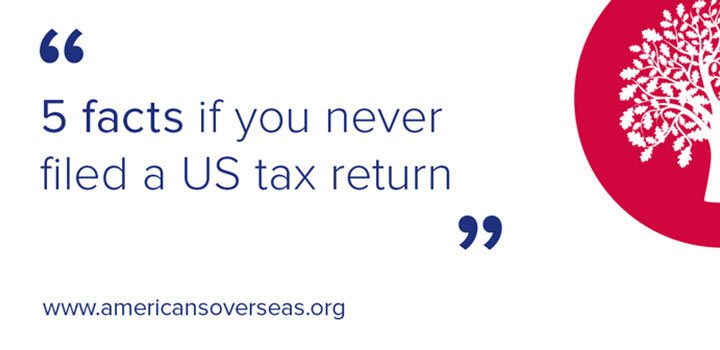
Accidental Americans in Caribbean Islands also taxable in U.S.

Summary
Residents of the Caribbean islands, as “accidental Americans,” may also face unwanted tax liabilities in the United States.
The Antilliaans Dagblad interviewed Daan Durlacher of Americans Overseas about the fact that residents of the Caribbean islands, as “accidental Americans,” may also face unwanted tax liabilities in the United States (US).
Willemstad, Curaçao – Residents of the Caribbean islands may also face unwanted tax liabilities in the United States as “accidental Americans.
US person
Daan Durlacher explains: “Americans Overseas was founded almost ten years ago by Michael Littaur and myself. We were both born in the Netherlands to a Dutch father and an American mother, which makes us not only Dutch, but also American. We discovered this to our shock when our Dutch bank suddenly asked if we were ‘US Person.’
This had major consequences because, without realizing it, we also had to comply with U.S. tax obligations. For example, we could no longer open new bank accounts without a U.S. Social Security Number (SSN), something we did not have and had never needed.
Because this situation and the associated Foreign Account Tax Compliance Act (FATCA) laws were so unfamiliar, we decided to create a platform to help others. Thus was born americansoverseas.org, where we share information for people in a similar situation.
We have since grown into an organization with a team providing support in five languages, and worldwide we help people file US tax returns. Our mission is to end the citizen-based taxation system (where Americans must pay taxes even if they do not live in the US) for so-called accidental Americans. Until that goal is achieved, we offer as much help and information as possible to mitigate the impact of these rules.”
Information on FATCA legislation
When asked what has been accomplished in the last decade, Durlacher replied, “The honest answer is that, unfortunately, we have not yet achieved much structural change. But we have been able to do a lot in terms of information. When we faced this situation ourselves, there was hardly any comprehensible information available, not from the government, banks, or the U.S. tax authorities. That has since changed.
In the Netherlands, for example, we have ensured that clear information about FATCA is available on the central government website and at banks. Awareness at banks has also improved. Where before people were often seen as tax evaders, there is now more understanding of the ignorance surrounding this obligation. Although the risk of bank accounts being frozen still exists, fortunately, it has diminished, provided people fulfill their obligations.
Durlacher explains that FATCA, introduced more than 15 years ago by Barack Obama, requires banks worldwide to turn over data on account holders of U.S. citizenship to the U.S. Internal Revenue Service (IRS).
IRS control tax liability America
“Recently, we have seen that the IRS has stepped up its monitoring of this. More and more people are now being notified by the IRS about their tax liability in the US. We as Americans Overseas are striving to change the tax system and eliminate taxation based on citizenship. However, we are realistic and know that this is still a long way off. Therefore, we are now focusing on creating exceptions for people who already pay taxes in their home countries and should not be subject to double taxation.
Over the past 15 years, the requirements for banks have become stricter. At first, it was enough for banks to do their best to identify American customers, but now they must report all Americans who have a Social Security Number (SSN). Banks that fail to do so risk heavy fines. Even if a customer does not have an SSN, banks must explicitly state this, with the risk that the U.S. government could still target these customers. This makes it increasingly complicated and risky for banks.”
Advice Caribbean Islands
Durlacher also has advice for people in a similar situation in the Caribbean islands. “First of all, avoid surprises. The system is complex, but in most cases, you don’t pay double taxes. Still, it is important to be well-informed and act on time. It often happens that banks suddenly ask for an SSN when you open an account or apply for a loan, for example. If you are not prepared at that time, things can come to a standstill. We offer free, no-obligation help to guide people through this process. The important thing is to base your decision – whether or not to file a tax return – on the right information.”
Presidential candidate Donald Trump recently indicated that he no longer wants to impose double taxation on Americans living abroad. However, it is unclear exactly what he means. Does he want to get rid of the tax return requirement for Americans outside the U.S., or just the double taxation for a small group?
After all, the majority of Americans living outside the U.S., do not have to pay taxes because they already pay taxes in their country of residence. If he really means he wants to get rid of citizen-based taxation, of course, we would welcome that. But given his vague statements and the target audience he is trying to appeal to, we are not too optimistic about it.”
Get informed at Americans Overseas
We, the founders of Americans Overseas, were born in the Netherlands and obtained our American nationality through our (American) mother.
When we heard about the US tax system for the first time around 2013, we were in total disbelief (it can’t be true!), anger (how can they do this?), fear (am I going to get fined or pick up other problems?), and panic (what should I do?). It is (unfortunately) true that there is an additional American tax levy. But there’s no information from the local government, and when approached, the consulate referred us to the IRS, and the IRS was impenetrable.
That’s why we started this initiative to help people from all over the world by providing proper information about the US tax system to avoid unnecessary panic and offering help free of obligation and free of charge. If needed, we have a network of affordable professionals (accountants) who can help you with your American tax obligations.
Contact us for more information
Bronnen Caribbean Islands FATCA (Aruba, Bonaire, Curaçao, Sint Maarten)
- Curaçao FATCA
- Governement of Sint Maarten FATCA CRS
- BES-eilanden belastingwetgeving
- Caribisch Nederland FATCA wetgeving
- Eerste Kamer: Internationale naleving belastingplicht en tenuitvoerlegging FATCA





